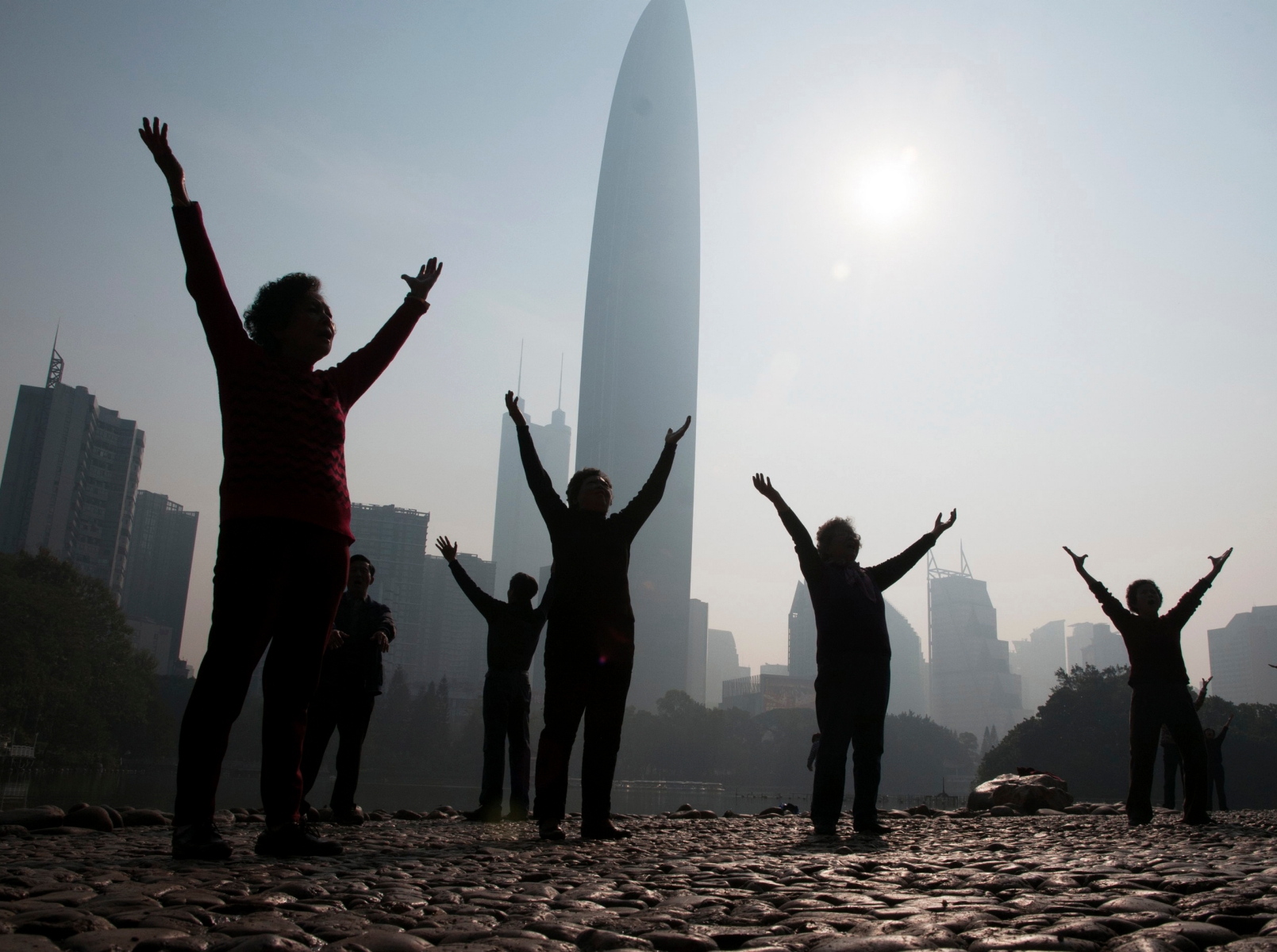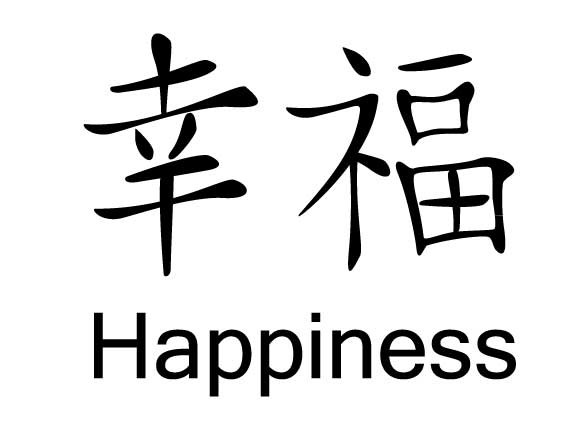
Residents do morning exercises at a park on a hazy day in Shenzhen, Guangdong province February 12, 2015
Photo: rand.org
"The past two decades in China brought unprecedented rates of economic growth, development, and poverty reduction. Indeed, much of the reduction in the world’s extreme poverty rates during that time can be explained by the millions of people in China who exited poverty. GDP per capita and household consumption increased fourfold between the years 1990 and 2005.1 China jumped 10 places forward on the Human Development Index from 2008 until 2013, moving up to 93 of 187 countries, and life expectancy climbed to 75.3 years, compared to 67 years in 1980.
"Yet during the same period, life satisfaction levels in China demonstrated very different trends—in particular dropping precipitously in the initial stages of rapid growth and then recovering somewhat thereafter. The drops in life satisfaction were accompanied by increases in the suicide rate and in incidence of mental illness. China had one of the highest suicide rates in the world in 1990s: approximately 23.2 suicides per 100,000 people per year from 1995 to 1999 (with the rate gradually falling to 7.8 per 100,000 by 2012). Mental health disorders, on the other hand, increased as suicide rates fell (perhaps because more individuals sought treatment). The annual growth rate of inpatients admitted into mental health hospitals was 13.4 percent from 2007 to 2012 (reaching 1.2 million people). Outpatient visits increased at a similar rate—12.4 percent (reaching a magnitude of 27 million outpatient visits in 2011).
"Is this an anomaly? Is there something unique about China’s life satisfaction and well-being more generally? Or is it China’s growth trajectory? While income metrics provide us with one story of China’s progress, well-being metrics—including measures of mental health—are telling us a very different story. What explains the discrepancy?"... Happiness and health in China: The paradox of progress
China: Marrying Economic Growth and Prosperity with Happiness and Well-Being

Photo: bing.com
There is no doubt that in the last few decades China’s economy and society have changed rapidly and profoundly. The economic transformation of the country has been nothing but most spectacular, to say the least. Massive annual GDP growth rates, huge increases in exports, modernisation of cities and towns, huge improvements in people’s standard of living, incomes and more. But, it seems, similar to the countries in the Western World, Chinese people are not satisfied. Something is missing. What is that? HAPPINESS! Indeed, many Chinese officials, media and commentators have frankly admitted to this.
For example, Zhang Lijuan, a columnist for China.org.cn - the official website of the State Council's Information Office, wrote on 16 March 2011 "30 years' of economic reforms in China have created an economic miracle. The government has promoted economic growth with a GDP target every year. But paradoxically, although people are wealthier, they are not happier. Facing issues of social injustice, high inflation, and a widening gap between the rich and poor, the government has decided to directly target happiness."
The goal of "happiness" for the people was announced by Premier Wen Jiabao in his Government Work Report to the opening of the annual session of the National People's Congress (NPC) on March 4. It is also written into the national 12th Five-year Plan for Social and Economic Development (2011 - 15) as a signal of change in development strategy. In his report, Premier Wen said the government's work is to "let people live more happily and with more dignity". The Premier has defined happiness as meaning that "happiness means people live comfortably, feel relieved and safe, and have confidence in the future." The Premier also said that Beijing would adopt the "happiness of the people" as a new yardstick to measure the performance of officials, replacing the 30-year-old yardstick of GDP growth.
I am delighted that the Globalisation for the Common Good Initiative (GCGI) has been at the forefront of promoting happiness and well-being studies and research, as well as arguing that economic policies should be based on economics of happiness, so that economic activities become more meaningful, relevant and fulfilling. If economic growth is not hand-in-hand with people’s happiness and well-being, then, this would be a recipe for disaster.
Surely there must be another way possible. Yes, it is, and a value-led education is the key to unlock the door to a better, happier life.
See for example:
What might an Economy for the Common Good look like?
In Search of Meaning in Life: Happiness Revealed
Why a Simple Life Matters: The Path to peace and happiness lies in the simple things in life
Nature the Best Teacher: Re-Connecting the World’s Children with Nature
We will be delighted to share our experience and expertise with our Chinese colleagues and all others who seek to be an instrument of happiness and well-being.
Kamran Mofid
